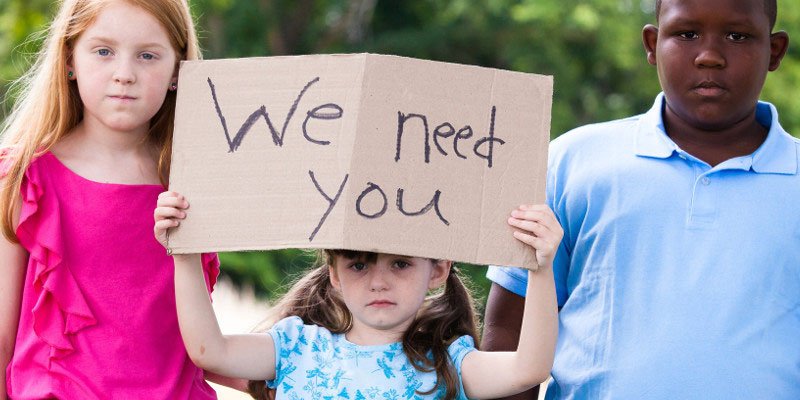Children entering foster care often face a range of challenges that can significantly impact their emotional, physical, and psychological well-being. Although foster care provides a safe environment, the circumstances surrounding their entry into the system can create lasting difficulties. This article outlines some of the key challenges faced by children in foster care and the importance of understanding these issues for better support and care.
1. Emotional and Psychological Trauma
One of the most significant challenges faced by children in foster care is emotional and psychological trauma. Many children enter the system due to abuse, neglect, or abandonment, leaving them with deep emotional scars. These traumatic experiences can lead to:
- Attachment Issues: Children may struggle with forming healthy attachments to caregivers, leading to trust issues and emotional instability.
- Anxiety and Depression: Feelings of fear, sadness, or uncertainty are common in children who have experienced trauma, and they may develop mental health issues like anxiety and depression.
- Behavioral Problems: Trauma can manifest as aggression, withdrawal, or other challenging behaviors, making it difficult for foster parents and caregivers to manage.
Providing trauma-informed care and consistent emotional support is crucial to helping these children heal.
2. Frequent Moves and Instability
Frequent placement changes are another challenge children in foster care face. Some children may experience multiple moves between homes, which can lead to:
- A Lack of Stability: Constant changes can cause feelings of abandonment and insecurity, making it harder for children to trust adults or adjust to new environments.
- Difficulty in Building Relationships: Frequent moves prevent children from forming long-term, meaningful relationships, further isolating them emotionally.
- Disrupted Education: Children who move frequently may face disruptions in their schooling, leading to academic struggles and a lack of continuity in their education.
The uncertainty of where they will live next and who will care for them can be distressing for foster children, impacting their overall well-being.
3. Identity and Self-Esteem Struggles
Children in foster care may have difficulties developing a stable sense of identity. The trauma they experienced before entering the system, combined with the challenges of foster care, can lead to:
- Confusion About Family and Identity: Being separated from biological parents can cause confusion about their place in the world and their family structure.
- Low Self-Esteem: Many children in foster care feel rejected or unwanted, leading to feelings of low self-worth and a negative self-image.
- Struggles with Cultural Identity: For children of different ethnic backgrounds or cultures, there may be a disconnection from their heritage, especially if they are placed in homes that do not share their cultural values or traditions.
Foster children may need extra support to develop a positive self-concept and healthy relationships with their cultural identity.
4. Educational Challenges
Educational achievement can be a struggle for children in foster care, and they often face several barriers to success in school, including:
- Frequent School Changes: Like placement changes, children may also move between schools, which can disrupt their learning and make it hard to adjust to new environments.
- Learning Disabilities: Many children in foster care have learning disabilities that may not have been identified or properly addressed before they entered the system.
- Emotional Distress Impacting Focus: Emotional trauma and stress can make it difficult for foster children to focus on their studies, leading to poor academic performance.
With the right support and accommodations, foster children can succeed academically, but they often need additional attention and resources to catch up and stay engaged.
5. Health and Well-Being Issues
Children in foster care may also face a variety of health-related challenges, both physical and mental:
- Neglected Medical Care: Children who come from situations of neglect may not have received necessary medical care, leading to untreated health issues like malnutrition, chronic conditions, or developmental delays.
- Mental Health Struggles: The trauma and stress of being in foster care can contribute to mental health challenges like depression, PTSD, and anxiety disorders.
- Access to Health Services: In some cases, children in foster care may have limited access to healthcare services or may experience delays in receiving treatment.
Ensuring foster children receive comprehensive health care, including mental health support, is essential to their well-being.

6. Lack of Permanency
One of the greatest challenges in foster care is the uncertainty regarding permanency. Many children in foster care are unsure if they will be reunified with their biological families or placed in an adoptive home. This lack of certainty can lead to:
- Emotional Distress: The uncertainty of their future can contribute to ongoing emotional distress, as children may not know where they will live long-term or who will care for them.
- Long-Term Foster Care: Some children spend many years in foster care, which can delay their sense of belonging and security. This extended uncertainty can affect their emotional growth and sense of stability.
The goal of foster care should always be to reunite children with their biological families if safe and possible. When that’s not feasible, providing permanent, loving adoptive homes can help children feel secure.
7. Social Stigma
Children in foster care often face stigma from peers, educators, or society, which can make it harder for them to fit in and feel accepted. This stigma can lead to:
- Social Isolation: Foster children may feel different from their peers, leading to isolation and difficulty making friends.
- Negative Stereotypes: They may be unfairly labeled as “troubled” or “bad,” even if they are not responsible for their circumstances.
Supportive relationships and understanding from teachers, peers, and caregivers are vital to reducing the stigma and helping foster children thrive.
Conclusion
While foster care provides essential protection and care for children in need, the system presents significant challenges that can impact their development, well-being, and future. Understanding the difficulties faced by children in foster care—such as emotional trauma, instability, and educational challenges—is key to providing the right support. By addressing these challenges with patience, compassion, and proper resources, we can help foster children heal, grow, and build brighter futures.




